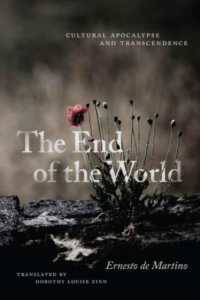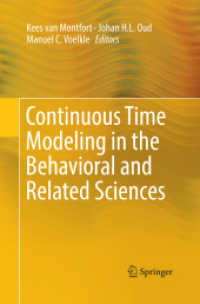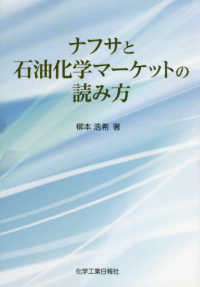Full Description
This collection examines Chile's two recent efforts to replace its constitution, both of which ultimately failed despite broad initial support. Drawing global media and scholarly attention, these high-profile processes offer critical lessons for understanding the challenges of democratic constitution making.
The book features contributions from constitutional lawyers, political scientists, and other experts, including seven constitution writers, providing both academic analysis and firsthand accounts. It explores the institutional design of the constitution-making bodies, the influence of Chile's political context, the substantive proposals advanced in key policy areas, and the behavior of political actors and voters. It also offers insider evaluations of institutional and procedural choices that either supported or undermined the process.
This volume is a key resource for scholars and policymakers interested in constitutional design, institutional reform, and Latin American politics. Readers in political science, constitutional law, and Latin American studies will find its analysis of Chile's process both informative and timely. Its interdisciplinary approach—blending comparative, legal, and empirical perspectives with practitioner insight—ensures broad relevance and appeal.
Contents
Introduction: Analyzing Chile's Constitution-Making Processes (Eduardo Alemán and Sebastián Soto Velasco) Part I: Political Context and Institutional Design 1. Toward an Understanding of the Economic Forces Behind Chile's Estallido Social (Arturo Fontaine and Sergio Urzúa) 2. Chile's Constitutional Processes in Comparative Perspective (Gabriel L. Negretto and Eugenia Artabe) 3. Citizen Participation in Constitutional Processes: Chile's Experience (2015-2023) (Francisco Soto Barrientos) 4. Constitution-Making and Its Discontents: When Political Context Undermines Institutional Designs (Eduardo Alemán and Gabriel L. Negretto) Part II: Perspectives from Constitution Makers 5. The Constitutional Convention: The View of a Progressive Independent Delegate (Tammy Pustilnick Arditi) 6. The Constitutional Convention: The Experience of a Right-Liberal Delegate (Hernán Larraín Matte) 7. Constitutional Council: Insights from a New Left Reformer (María Pardo-Vergara) 8. Constitutional Council: Reflections from a New Right Architect (Luis Silva) Part III: Substantive Debates and Draft Content 9. Principles: Disagreements and Consensus and Their Impact on Constitutionalism (Catalina Salem) 10. Expanding the Catalog of Rights in Chile's Constitutional Processes: When New Rights Open New Risks (Sebastián Soto Velasco) 11. The Long Road to Recognition: Indigenous Peoples and Constituent Processes in Chile (Manuel Núñez and Alejandra Precht) 12. Reforming the Judiciary and Constitutional Tribunal (Lydia Brashear Tiede) 13. Recrafting the Political System: The Endurance of Chile's Presidentialism (Andrés Dockendorff, Christopher A. Martínez, and Rocío Saez-Vergara) Part IV: Empirical Perspectives on Behavior and Attitudes 14. Out with the Old, Out with the New: Vote Choice During the Constitution-Making Period in Chile (Eduardo Alemán, José M. Cabezas and Ernesto Calvo) 15. Roll Call Votes in the Constitutional Writing Processes in Chile, 2021-2023 (Patricio Navia and Francisco Roldán) 16. Beyond Parties: Assessing Ideological Representation in the Chilean Constitutional Convention (Jorge Fábrega) 17. Switching Off: Political Attention and News Consumption in 2022 Referendum (Carolina F.T. Batista and Ernesto Calvo) 18. Conclusions (Eduardo Alemán and Sebastián Soto Velasco)








